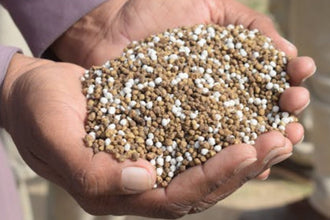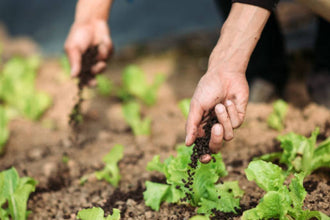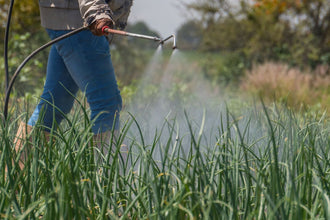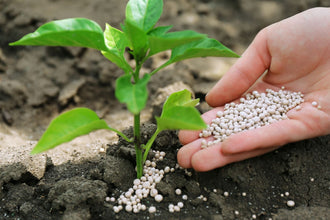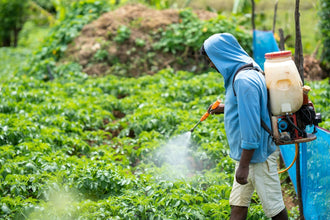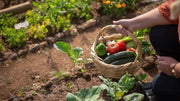
Pelletized chicken manure beats compost in more ways than most gardeners realize. Most people grab compost without thinking twice, but pelletized chicken manure actually works faster and feeds plants better than traditional compost.
Both help your garden grow, but they work totally differently. Knowing how each one works helps you pick the right one for what you want to do with your garden.
What's the Deal with Pelletized Chicken Manure
Pelletized chicken manure starts out as regular chicken poop that gets heated up, dried out, and pressed into little round pellets. This whole process kills off any bad bacteria while keeping all the good plant food concentrated in those tiny pellets.
These pellets have way more nutrients than compost does. Good pelletized chicken manure usually runs about 4-2.5-2 NPK. That means 4% nitrogen, 2.5% phosphorus, and 2% potassium. Those numbers might not look huge, but they really pack a punch for your plants.
Fresh chicken poop would totally fry your plants because it has too much ammonia in it. The pellet-making process gets rid of that problem but keeps all the good stuff your plants need. You end up with concentrated plant food that slowly releases nutrients as those pellets break down in your soil.
Storing pelletized chicken manure is super easy too. The pellets last for years without going bad. They don't stink like fresh manure and won't bring flies or other gross bugs into your garage.
How Compost Actually Works
Compost happens when stuff like leaves, grass clippings, kitchen scraps, and yard waste rots down over time. Tiny organisms eat all that stuff and turn it into dark, crumbly soil booster that's loaded with organic matter.
Store-bought compost has much less plant food than pelletized chicken manure. Most compost gives you less than 1% nitrogen and hardly any phosphorus or potassium. But compost really shines at making your soil work better and hold water.
All those tiny organisms that made the compost keep working in your soil after you spread it around. These little guys help break down organic stuff and make nutrients available to your plant roots for a long time.
Compost quality changes a lot depending on what went into it and how it got made. City compost usually has yard waste mixed with sewage sludge, while store compost might have all sorts of organic materials like wood chips and food scraps mixed in.
Nutrient Showdown: The Winner Might Shock You
Pelletized chicken manure has way more plant food per pound than compost does. This concentrated nutrition means you need way less of it to feed your plants properly.
That 4-2.5-2 NPK ratio in good pelletized chicken manure gives most garden plants exactly what they need. Nitrogen makes leaves grow thick and green. Phosphorus helps roots grow strong and makes flowers bloom. Potassium makes plants tough and helps them fight off diseases.
Compost typically gives you maybe 0.5-1-0.5 NPK if you're lucky. Those smaller numbers don't look as impressive, but compost helps your garden in other important ways that you can't measure just by looking at nutrient numbers.
Both have trace nutrients your plants need, but pelletized chicken manure usually has more calcium, magnesium, and sulfur. These secondary nutrients help your plants do things that the main NPK nutrients can't handle by themselves.
Soil Building: Where Each One Works Best
Compost totally wins when it comes to making your soil better. All that organic matter in compost helps clay soil drain better and helps sandy soil hold onto water and nutrients. This improvement sticks around for years.
Pelletized chicken manure gives you some organic matter as those pellets break down, but not nearly as much as the same amount of compost would. The pellets focus mainly on feeding your plants instead of building better soil.

Your soil holds water so much better with regular compost applications. Gardens that get compost don't need watering as often when it gets dry. All that organic matter works like tiny sponges that hold water right where your plant roots can use it.
Compost also keeps feeding helpful soil bugs for months. These microscopic workers keep breaking down organic stuff and moving nutrients around all growing season long.
Speed Test: Pelletized Chicken Manure Takes the Lead
Plants respond to pelletized chicken manure way faster than they do to compost. Those concentrated nutrients get to work within a few weeks, and you can actually see your plants get greener and grow better.
Compost works slower, building up soil health gradually over months and years. This slow-release feeding gives steady nutrition, but it won't fix nutrient problems as fast as pelletized chicken manure will.
If you want to see results quickly, pelletized chicken manure gives you that fast plant response that makes you feel good about your gardening skills. Your lawn gets green within three weeks. Vegetable plants start growing better within a month.
Compost takes patience, but it rewards gardeners with improvements that keep getting better over time. Soil that gets compost regularly becomes more fertile every single year.
Easy Application: No Contest Here
Pelletized chicken manure wins big time for being easy to use. Those uniform pellets spread evenly with a broadcast spreader or you can just mix them right into your planting holes. No measuring or mixing needed.
Storage is way easier with pellets too. Bags stack nicely in your garage or shed without stinking or bringing in bugs. The pellets won't freeze in winter or go bad in summer heat.
Compost takes more work to put down. Bulk compost needs wheelbarrows and rakes to spread it around. Bagged compost costs more per bag and often has chunks of different sizes that don't spread evenly.
Working compost into your garden beds takes more time and sweat than just throwing pellets around. But all that extra work often helps mix your soil better and gives your plants a better start.
Money Talk: What Really Costs More
Pelletized chicken manure usually costs more per bag than compost, but it gives you way more concentrated plant food. A 25-pound bag of pellets often feeds your plants as well as several bags of compost would.
Compost gives you better value when you need to improve lots of soil. Large amounts cost less per yard than the same amount of pelletized fertilizer would. For building new garden beds, compost gives you more bulk for less money.
Getting it home favors pelletized chicken manure for most home gardeners. You can fit several bags of pellets in your car trunk, but bulk compost needs a truck delivery or lots of trips back and forth.
Long-term costs depend on what you're trying to do with your garden. Regular compost applications build soil health that means you need less stuff later on. Pelletized chicken manure might need more regular applications to keep nutrient levels where they should be.
What's Better for the Environment
Both amendments help sustainable gardening by recycling organic waste that would otherwise get thrown away. Pelletized chicken manure puts poultry industry waste to good use instead of letting it pile up somewhere.
Compost keeps organic waste out of landfills where it would make methane gas. City composting programs turn yard waste and food scraps into valuable soil amendments.
Carbon footprint changes depending on how far the stuff gets shipped. Local compost usually has less environmental impact than pelletized products that get trucked in from far away.
Water quality gets better from both when you use them right. Organic matter in both products helps stop nutrient runoff that can mess up streams and lakes.
Why Fancy Chicken Changes the Pelletized Chicken Manure Game
The Perfect NPK Balance Your Garden Actually Needs
Fancy Chicken delivers exactly what serious gardeners look for in pelletized chicken manure. With its balanced 4-2.5-2 NPK formula, this organic fertilizer gives your plants the precise nutrition they crave without any guesswork.
Most generic pelletized chicken manures vary wildly in their nutrient content. Some batches run too high in nitrogen and burn your plants. Others barely have enough nutrients to make a difference. Fancy Chicken solves this problem with consistent, tested nutrient levels in every single bag.
The nitrogen content helps your vegetables grow thick, dark green leaves. Phosphorus strengthens root systems and boosts flower production. Potassium builds plant immunity against diseases and pests. This balanced approach means your garden gets complete nutrition instead of just one or two nutrients.
Soil Health Benefits That Keep Working
Fancy Chicken goes beyond basic plant feeding. This premium pelletized chicken manure actively builds soil health while delivering fast nutrition to your plants.
The carefully processed pellets break down gradually, feeding beneficial soil microbes that improve your garden's long-term fertility. These microscopic workers help create better soil structure, improve drainage, and make nutrients more available to plant roots throughout the growing season.
Key soil improvements include:
-
Enhanced water retention in sandy soils
-
Better drainage in heavy clay soils
-
Increased beneficial microbial activity
-
Improved soil structure that lasts for years
-
Natural pest and disease resistance for your plants
Quality You Can Trust, Results You Can See
Fancy Chicken stands behind its product with rigorous quality testing and organic certification. Every batch gets tested to ensure it meets strict organic standards while delivering consistent nutrient levels.
The sustainable sourcing comes from carefully managed chicken farms that raise their birds without harmful chemicals or antibiotics. This clean process results in pure, safe fertilizer that you can use confidently around kids, pets, and food crops.
You'll notice the difference within 2-4 weeks of application. Plants develop stronger stems, deeper green color, and better resistance to environmental stress. Vegetable gardens produce bigger harvests. Flower beds bloom longer and more abundantly. Even struggling lawns bounce back with regular Fancy Chicken applications.
Easy Application for Busy Gardeners
The uniform pellet size makes Fancy Chicken incredibly easy to apply evenly across your garden beds or lawn. Unlike loose compost that requires raking and careful spreading, these pellets distribute perfectly with a simple broadcast spreader or even by hand.
Application rates stay consistent because the pellets don't vary in size or density like some other organic fertilizers do. This reliability means you won't accidentally over-fertilize some areas while leaving others underfed.
The slow-release formula means fewer applications throughout the growing season. Most gardeners only need to apply Fancy Chicken every 4-6 weeks during active growing periods, saving time and effort compared to synthetic fertilizers that need constant reapplication.
Your Garden Deserves the Best Organic Nutrition Available
Stop settling for inconsistent results from generic fertilizers and questionable compost quality. Fancy Chicken organic pelletized chicken manure gives you the concentrated nutrition, soil-building benefits, and reliable results that make gardening more rewarding.
Whether you're growing prize-winning tomatoes, maintaining a lush lawn, or nurturing delicate flowers, Fancy Chicken provides the premium organic nutrition your plants need to thrive. Your garden will show the difference, and you'll see why more gardeners are making the switch to this superior organic fertilizer every growing season.
Picking What Works for Your Garden
Go with pelletized chicken manure when you need fast results and concentrated nutrition. New gardens with crappy soil benefit from that immediate nutrient boost. Plants that are already growing but look like they need help respond quickly to pelletized applications.
Compost works better for long-term soil building projects. Heavy clay or sandy soils get way better with regular compost additions. Gardens focused on soil health instead of quick plant response benefit more from compost's slow-working organic matter.
Lots of successful gardeners use both strategically. Pelletized chicken manure gives seasonal nutrition while compost builds soil structure over time. This combo approach handles both immediate needs and long-term garden health.
Think about how much work you can handle and how much time you have. Pelletized chicken manure takes less work to apply effectively. Compost needs more physical effort but often costs less for big areas.
The best choice depends on your specific garden conditions, what you want to accomplish, and how long you want to wait for results. Both amendments offer real benefits when you use them right. Understanding what each one does best helps you pick the right tool for each gardening situation.
Your soil test results can help you decide. Soils with plenty of organic matter but low nutrients benefit from pelletized chicken manure. Soils with decent fertility but poor structure need compost more than concentrated fertilizer.




